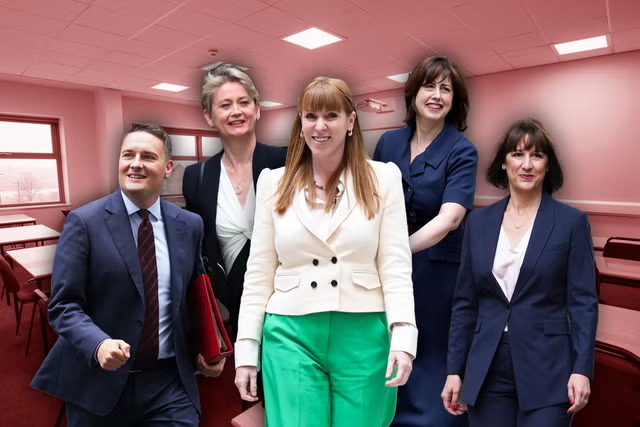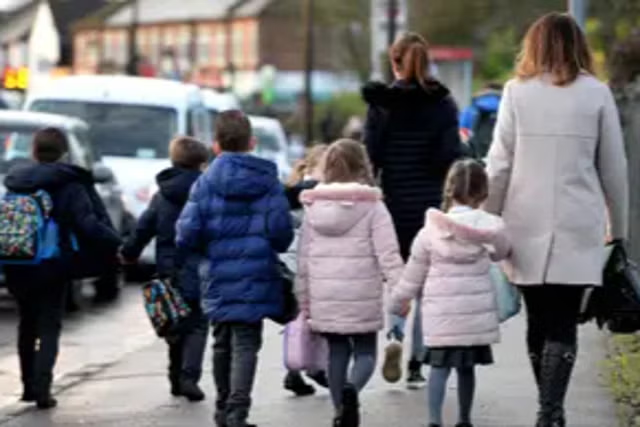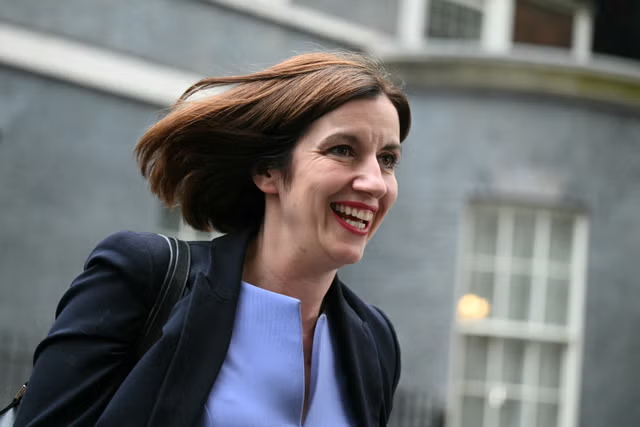A federal appeals court temporarily blocked a key part of President Joe Biden's student loan forgiveness plan, ruling that the Saving on a Valuable Education (SAVE) plan should be put on hold.
Under SAVE, more than 20 million borrowers would have seen lower monthly payments or full forgiveness of their debt. But on Thursday, the St. Louis-based 8th Circuit Court of Appeals blocked the plan from moving forward.
In response to the ruling, the White House said there could be "devastating consequences" for student loan borrowers.
"Today's ruling from the 8th Circuit blocking President Biden's SAVE plan could have devastating consequences for millions of student loan borrowers crushed by unaffordable monthly payments if it remains in effect," U.S. Secretary of Education Miguel Cardona said in a statement.
"It's shameful that politically motivated lawsuits waged by Republican elected officials are once again standing in the way of lower payments for millions of borrowers."
Cardona said borrowers already enrolled in SAVE will be put in interest-free forbearance while the Biden administration looks to keep defending the plan in court.
"It wasn't so long ago that a million borrowers defaulted on their student loans every single year, mainly because they couldn't afford the payments," Cardona said. "The SAVE plan is a bold and urgently needed effort to fix what's broken in our student loan system and make financing a higher education more affordable in this country."
According to Cardona, the White House has approved $169 billion in student loan relief for roughly 4.8 million Americans.
"And from larger Pell Grants to free community college, President Biden, Vice President Harris, and I continue to believe that college affordability is a cause worth fighting for—and we're not giving up," Cardona said.
Seven Republican-led states challenged the legality of Biden's debt relief plan earlier this year, and key parts of the SAVE plan had already been blocked by other judges.
SAVE, which is a type of income-based repayment plan, lowered monthly payments for certain borrowers and allowed people with original loan balances of $12,000 or less to have their debt cleared after 10 years.
"What's concerning about the SAVE plan experiencing legal resistance is it could equate to virtually all student loan forgiveness that has been proposed being unavailable in time," Alex Beene, a financial literacy instructor at the University of Tennessee at Martin, told Newsweek.
"The SAVE plan was designed as a way to lower monthly payments for many borrowers and offer possible forgiveness if they made every payment over a 10- or 20-year period of time. It was a financially manageable and sustainable plan that allowed students to be more financially viable while still paying back some of the debt they took on."
In May, 8 million were already enrolled under SAVE, and 4.6 million saw their monthly payments eliminated. As of Thursday, the Education Department said SAVE had cleared $5.5 billion for 414,000 borrowers.
Missouri Attorney General Andrew Bailey, who was one of the leaders asking for SAVE to be blocked, called the decision a "huge win for every American who still believes in paying their own way," on X, formerly Twitter.
Last summer, Biden's larger $430 billion student relief plan was ruled unconstitutional by the U.S. Supreme Court. That initiative would have seen $20,000 in debt erased for up to 43 million Americans.
Beene said the new decision indicates that other plans for debt relief could be struck down in the future, calling into question the viability of student loan forgiveness in general.
"With some states now wanting to roll back the plan, a question can now be asked if there even is a plan to help borrowers manage the debt they have accrued at an early age," Beene said.
"Outright full forgiveness of all student loans isn't a legal or legislative option, but if even small attempts to make debt more reasonable to acquire are being struck down, it's hard to envision any type of relief coming in the near future."
Disclaimer: The copyright of this article belongs to the original author. Reposting this article is solely for the purpose of information dissemination and does not constitute any investment advice. If there is any infringement, please contact us immediately. We will make corrections or deletions as necessary. Thank you.



